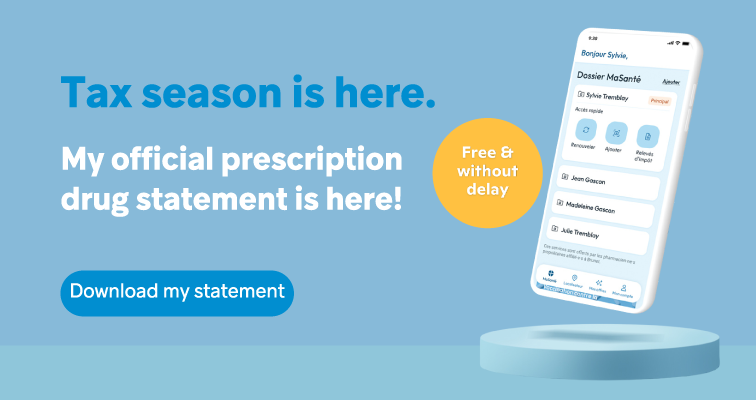For many women, deciding to breastfeed comes naturally. Beyond the many benefits for her baby’s health, breastfeeding gives a mother the opportunity to create a special, unique relationship with her newborn. Here is some information that may help you make the best decision for you and your baby.

Breastfeeding: an issue of importance
When a woman is expecting, she hopes, more than anything, to be able to offer her child the very best of herself. If you are pregnant, it is completely normal to ask yourself a lot of questions and to start preparing for the imminent arrival of the little one whose well-being will soon be your main priority. Understandably, breastfeeding is often at the top of the list of a pregnant woman’s worries and questions, for the decision to breastfeed is a fundamental one that deserves much reflection.
A woman’s body is able to produce milk that is perfectly formulated to meet all of her newborn’s nutritional needs. No other food is considered to be of as great quality than a mother’s milk, so the medical community recommends that babies drink it exclusively until the age of 6 months. The benefits of breast milk go beyond nutritional aspects. Indeed, if you choose to breastfeed your child, it will be an advantageous decision for many reasons, such as:
- You will simplify your way of life. Breastfeeding is practical and economical: nothing to wash, no bottles to prepare, no measuring to do or equipment to handle.
- Your child will be provided with milk that is easy to digest.
- You will be contributing to the development of your baby’s brain, digestive system and immune system.
- You will reduce his or her risks of getting certain illnesses, such as infections (ex: ear infection), allergies and digestive or respiratory diseases.
- You will be building a special bond and mutual attachment.
- You will be able to relax. When things are going well, many women feel that breastfeeding is peaceful and soothing.
- On a long-term basis, breastfeeding will lower your chances of developing certain diseases, such as osteoporosis, breast cancer, ovarian cancer and uterine cancer.
The list of breastfeeding’s benefits is long; discuss it with your health professional to make an informed decision.
Before your baby’s arrival
During your pregnancy, start gathering information about breastfeeding, its advantages and its challenges. That way, you will be ready to face any obstacle that might arise. There is nothing for you to do to prepare your breasts before giving birth; throughout the pregnancy, they will naturally prepare to produce milk. Purchasing or borrowing a breastfeeding pillow and bra will make it easier. Take advantage of your free time to make meals to freeze in advance so that later, you’ll be able to focus solely on breastfeeding your baby.
Being surrounded will also help you make breastfeeding a successful and positive experience. Seek the advice of your health professional (doctor, midwife or pharmacist) regarding the available resources in your area. It is essential to know who to consult if you have a problem. You can also, if you wish, be matched with a breastfeeding coach, who will be able to guide you and provide you with useful advice. Ask at the CLSC (or contact such organizations as Nourri-Source or La Leche League) how you can get support or answers to your questions.
Useful advice
Here are a few tips that will make breastfeeding easier:
- In the hour following your baby’s birth, keep him or her on you. Your baby will start looking for the breast, which will promote milk production. Also, offering the breast this early will make things easier later.
- Stay close to your baby in his or her first hours and days of life to establish contact and to have the chance to breastfeed often.
- Breastfeed on demand.
- With the nurse’s or breastfeeding consultant’s help, make sure the baby latches on properly before leaving the hospital or birthing centre. Ask her to show you different breastfeeding positions.
- Avoid skipping feedings, offering a pacifier or giving a bottle to your baby before the age of 4 to 6 weeks in order to promote milk production.
- If you are having difficulty breastfeeding, seek help as quickly as possible. There are several professionals who can help you, such as your pharmacist. For most of the minor problems linked to breastfeeding, there are simple solutions.
- Rest whenever you can. Ask your loved ones to support you and help you with housecleaning or other chores.
- Eat well and drink lots of water.
How long can I breastfeed?
Choosing to breastfeed is a very personal decision. However, note that several organizations, including Health Canada, recommend that babies be exclusively breastfed during their first 6 months of life and, after food has been introduced, until they are 2 years old. Continuing to breastfeed depends on several factors; you can choose to breastfeed for 3, 6, 12 months or more. That is up to you. Some women choose to not breastfeed, to mix feedings or to stop breastfeeding earlier, depending on their personal situation. If you choose not to breastfeed or to stop breastfeeding because you are having difficulties, or for any other reason, don’t feel guilty. Your health professional will give you information on how to choose and use formula.
Your partner: an ally in breastfeeding
The father’s support is essential at the beginning of and during breastfeeding. At first, he can help the mother get comfortable and bring the baby to the breast. It is important to encourage the mother to keep breastfeeding even if some difficulties arise. And Dad, don’t worry about establishing a relationship with your baby; a father’s attachment to his child can grow in other ways than feeding! You can rock your baby after feedings, change diapers, give baths and dress him or her. All of these little gestures will facilitate breastfeeding; the mother will greatly appreciate them and you will feel that you are playing an active role in your baby’s well-being.
During pregnancy, take the time to get ready and to enjoy each moment before your baby’s arrival. Giving birth is one of life’s most joyful experiences, both grandiose and unique. Breastfeeding is a task that is learned and that benefits the entire family. Your pharmacist can give you more information on breastfeeding and baby’s health, as well as help you find solutions in case of difficulties. Don’t hesitate to call upon her or him at any stage of the process. Parenting is the greatest source of joy and amazement, so don’t let worrying keep you from enjoying it to the fullest!

